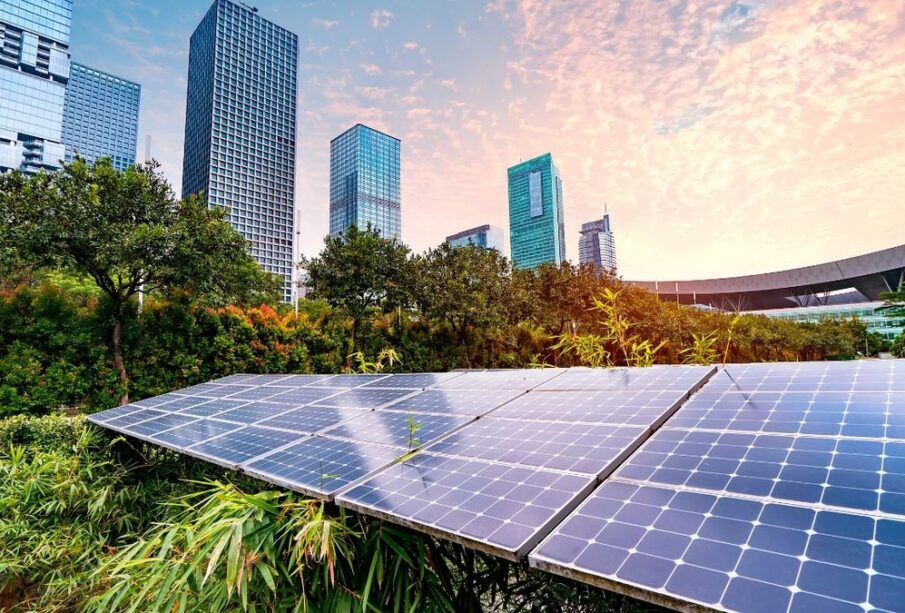Harnessing Solar Energy with Structural Integration in Structural Constructions

In the quest for sustainable energy solutions, the integration of solar energy into buildings and infrastructure has emerged as one of the most promising strategies. Integrating solar panels and other PV technologies seamlessly into buildings and infrastructure allows structural engineers to optimise energy generation while minimising environmental impact. In this article, we will explore the concept of solar with structural integration, the advantages of integrating solar with buildings and infrastructure, and the roles of structural consultants, especially in Bangalore, in the implementation of these innovative solutions.
Understanding Structural Integration of Solar Energy:
Installing solar panels and PV systems directly into buildings and infrastructure is known as “structural integration” or “solar integration.” Instead of installing solar panels as separate units, structural engineers incorporate solar panels into various structural elements, including roofs, facades and canopies, to not only generate renewable energy, but also improve the appearance, functionality and efficiency of a built environment.
Benefits of Structural Integration:
Structural integration of solar energy offers several key benefits:
- Maximised Energy Generation: By incorporating solar panels into the design of a building, structural engineers can optimise the building’s exposure to the sun’s energy and optimise its energy generation. This enables buildings to capture a significant proportion of their energy requirements onsite, reducing their reliance on the grid and fossil fuels.
- Space Optimization: Adding solar panels to existing structures means you don’t need to worry about extra space or land. This makes it perfect for urban areas where space is tight. Roofs, facades and parking structures are all great places to install solar panels and make the most of the available space.
- Aesthetic Enhancement: Solar panels can be incorporated into the structure of a building or infrastructure, transforming it into an architectural element that blends in with its surroundings. Whether it’s a sleek glass facade or a cutting-edge canopy structure, solar panels can be used to add a modern and eco-friendly touch to a building.
- Environmental Sustainability: Utilising solar energy for buildings helps to reduce carbon emissions and promote sustainability. Solar energy is clean, abundant, and renewable, making it a viable option to replace fossil fuels and mitigate climate change.
- Cost Savings: Investing in solar energy infrastructure upfront may cost more than investing in traditional energy systems, but the long-term savings are significant. The structural integration of solar panels lowers your energy bills, gives you a dependable electricity source, and provides you with potential revenue opportunities through net metering, feed-in tariffs, etc.
Role of Structural Consultants:
Structural consultants in bangalore play an essential role in the successful integration of solar energy systems. The city, which is renowned for its innovation and sustainability, structural consultants work on a variety of projects. They work with architects, engineers and developers to evaluate the feasibility of incorporating solar energy into new or existing structures. They carry out site assessments, analyse the structural requirements, and suggest appropriate design solutions to optimise the energy generation and performance of the building.
Through the use of advanced analysis tools, simulation software, and the assessment of the structural integrity of the building with integrated solar panels, structural consultants ensure that the solar energy systems are integrated seamlessly into the structural design without sacrificing safety, functionality, and aesthetics. They also provide guidance on the various regulatory requirements, permitting, and incentive programs associated with solar energy integration, as well as ensuring that projects comply with all legal and technical requirements.
To conclude, the combination of solar energy and structural integration has great potential for building resilient and sustainable buildings and infrastructure. Through the integration of solar panels into structural components, buildings can produce clean and renewable energy, while also reducing their environmental footprint. The role of structural consultants, including those based in Bangalore, in achieving this vision is crucial. They provide expertise, innovation and guidance to ensure that solar energy solutions are successfully implemented into structural constructions.
The Role of Underlayment in Shingle Roofing Systems
April 1, 2025
Comments are closed.
More News
-
Ozone treatment for mold explained
February 9, 2024 -
Construction Clean-Up Work? Call Elite Service Solution
February 8, 2025







